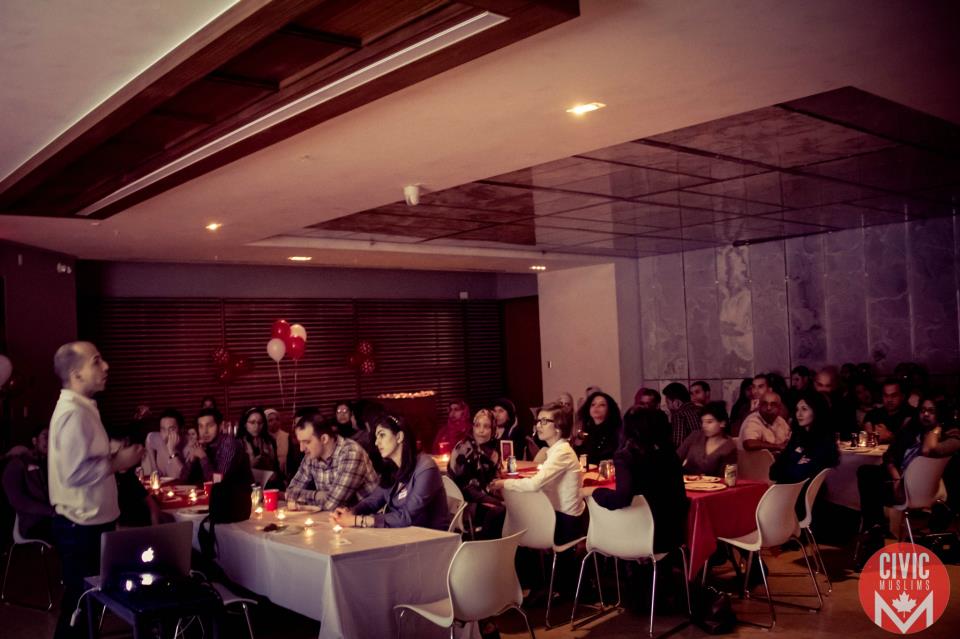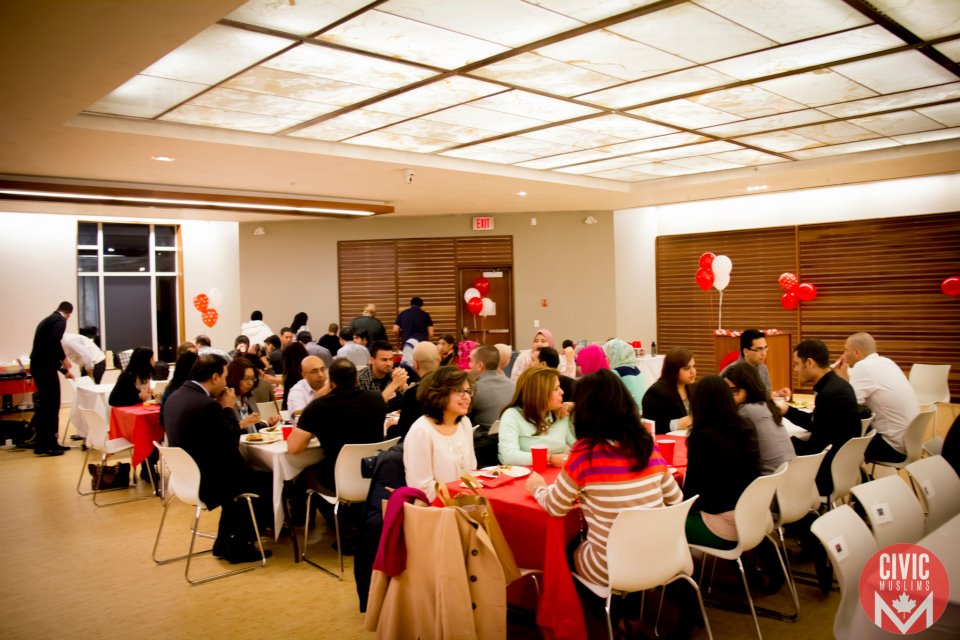by Tesneem Alkiek and Layth Dahbour The Green Muslims Initiative (GM) at the University of Michigan in Ann Arbor is two-fold. Firstly, we hope to educate and implement environmentally sustainable habits that can be easily adopted by our campus community. Secondly, as we are a new initiative under the Muslim Students’ Association (MSA), we want to create a clear connection between the importance of environmental conservatism and the faith of Islam. In our first year we already have made major changes in the way the MSA, as an organization, treats the environment, hosted events that educate our community of habits that they can adopt, discussed several connections between the protecting the environment and Islam, and provided college students with opportunities to get further involved with green activities on campus.
We hit the ground running and started our year off by inviting Chaplain Nuri Friedlander of Harvard to shed light on the Islamic importance of living green. One of our greatest investments has been using reusable plates, cups, and utensils at all of our MSA events! In addition, we have found a homeless shelter in our community that accepts all the extra food left over at the MSA events.
Our biggest event this year was the “Green Week” that happened in early February. Throughout this week, we put a green twist on MSA weekly events. We held a “Green” Mini-Qiyam where one of our community members who studies Environmental Science explained to us that our role as Muslims is to be stewards of the Earth that Allah (swt) has blessed us with. GM also hosted the MSA’s first ever “Brothers vs. Sisters Cook-off.” This event was meant to teach our community the importance of buying local, organic food, in order to minimize the impact we have on the environment.
Prior to the cook-off, we had a workshop on simple steps that we can incorporate into our daily lives, in order to protect the environment in general, and the University of Michigan campus more specifically. This is part of UM’s new Planet Blue Ambassador Program. To conclude the week, the Green Muslims Initiative influenced a “Green” Friday khutbah and also hosted a trip of volunteers at the local arboretum where we cut down invasive species from their natural habitats.
Looking forward, the Green Muslims Initiative hopes to continue providing the Muslim community and the overall campus community with opportunities to be more educated and involved in environmental sustainability. In the future we hope to implement regular services that encourage college students to be more conscious of how they treat the Earth. Strategies to do this include collaborating with campus offices and student organizations in Ann Arbor and elsewhere.
We also want to continually remind the members of our community that our faith emphasizes our role as stewards of the environment. It is through verses like the one below that drive the progress of GM:
“But waste not in excess: for Allah loveth not the wasters” (6:141), (7:31)
Tesneem Alkiek has completed her sophomore year at the University of Michigan, studying Early Christianity and Islamic Studies. She is currently the Community Service cochair for the MSA. Layth Dahbour is a junior majoring in Political Science and Biomolecular Science and has become involved with Green Muslims to learn more about Islam and environmentalism.
If you have questions or comments about the Green Muslims Initiative at the University of Michigan, please feel free to e-mail greenmuslims@umich.edu.
Originally published online on April 26 2013 on Green Muslims, (www.greenmuslims.org/)









